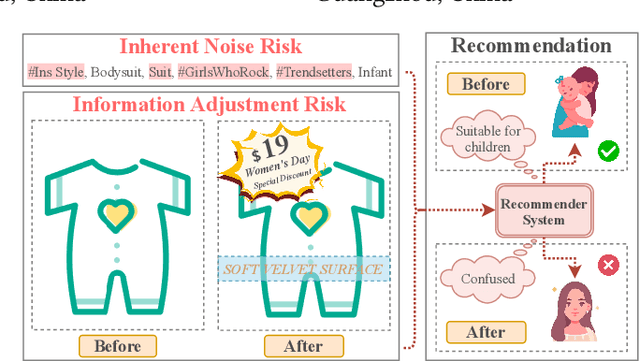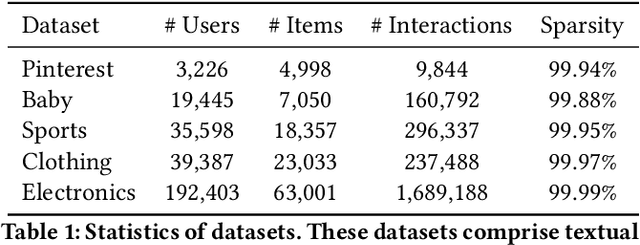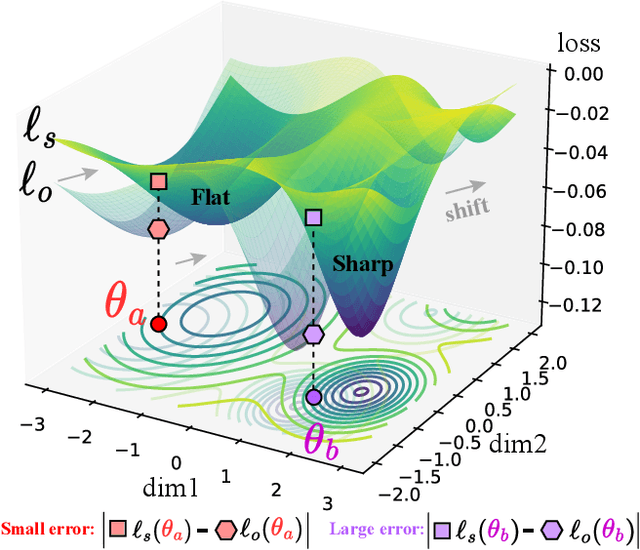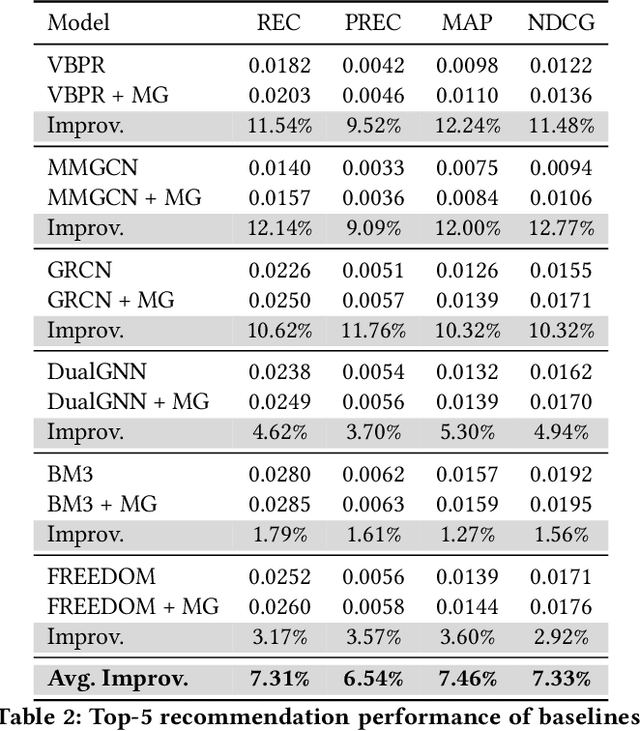Mirror Gradient: Towards Robust Multimodal Recommender Systems via Exploring Flat Local Minima
Paper and Code
Feb 17, 2024



Multimodal recommender systems utilize various types of information to model user preferences and item features, helping users discover items aligned with their interests. The integration of multimodal information mitigates the inherent challenges in recommender systems, e.g., the data sparsity problem and cold-start issues. However, it simultaneously magnifies certain risks from multimodal information inputs, such as information adjustment risk and inherent noise risk. These risks pose crucial challenges to the robustness of recommendation models. In this paper, we analyze multimodal recommender systems from the novel perspective of flat local minima and propose a concise yet effective gradient strategy called Mirror Gradient (MG). This strategy can implicitly enhance the model's robustness during the optimization process, mitigating instability risks arising from multimodal information inputs. We also provide strong theoretical evidence and conduct extensive empirical experiments to show the superiority of MG across various multimodal recommendation models and benchmarks. Furthermore, we find that the proposed MG can complement existing robust training methods and be easily extended to diverse advanced recommendation models, making it a promising new and fundamental paradigm for training multimodal recommender systems. The code is released at https://github.com/Qrange-group/Mirror-Gradient.
 Add to Chrome
Add to Chrome Add to Firefox
Add to Firefox Add to Edge
Add to Edge